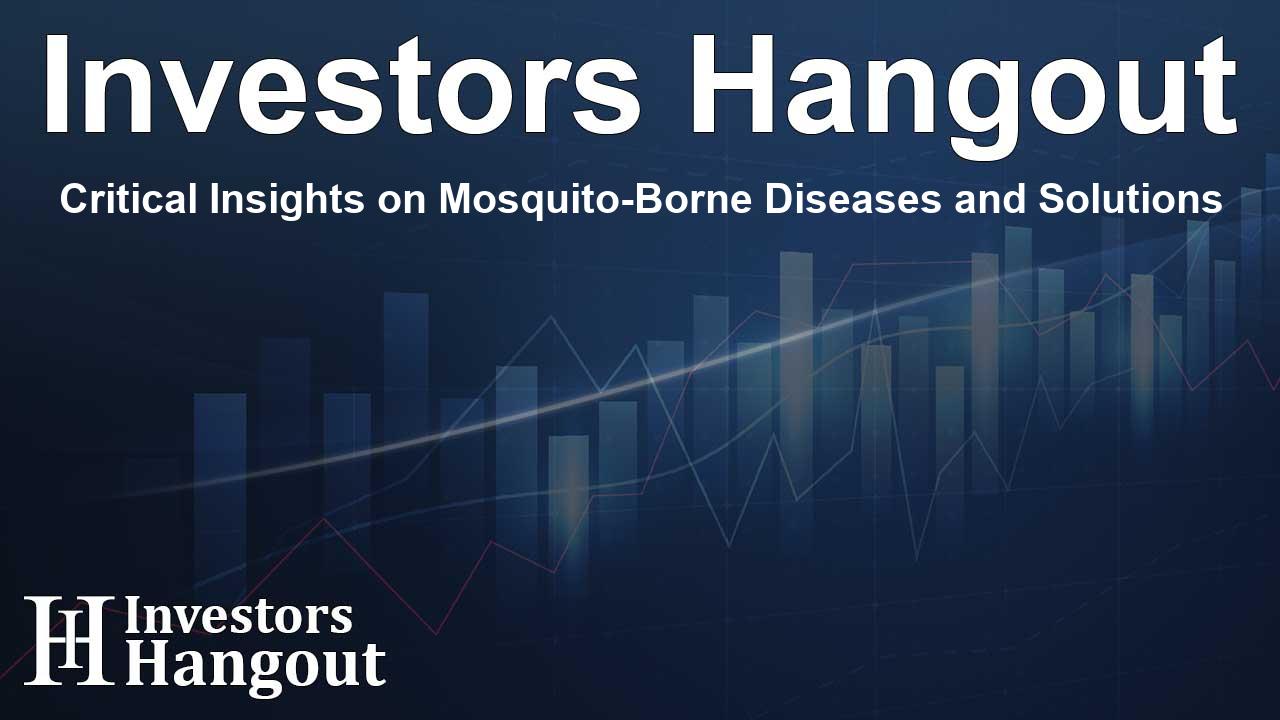Critical Insights on Mosquito-Borne Diseases and Solutions

A Critical Report on Mosquito-Borne Diseases
The healthcare landscape continuously faces evolving challenges, and mosquito-borne diseases represent a significant public health threat. A recently released report from Cure provides essential findings illuminating the disconnect between healthcare experts, primary care physicians, and the general public regarding awareness and concern about these life-threatening infections. As the world sees a global surge in such diseases, the report underscores the urgent need for increased education and public health initiatives.
Understanding the Disconnect
Cure's benchmark report brings to light the stark contrasts in perceptions of mosquito-borne diseases. It reveals that while infectious disease specialists express concern for these health threats, both physicians and the public remain largely unaware, with many exhibiting a low sense of urgency about the implications of climate change in increasing the spread of diseases like West Nile virus and Eastern Equine Encephalitis.
The Role of Climate Change
Climate change has reached a critical juncture where it fosters environments conducive to mosquito breeding, as noted by Cure CEO Seema Kumar. The result is a growing risk for new outbreaks in the US, particularly as seen with the emergence of dengue fever and other similar threats. Climate events have created scenarios in which pathogens can rapidly spread, posing even more challenges to public health systems.
Survey Findings on Public Perception
One focal point of Cure’s findings is the low level of concern observed among healthcare providers and the public. Only about one-third of physicians and a quarter of the public interviewed expressed strong concerns about mosquito-borne illnesses. This feeling of disconnect could lead to delays in implementing necessary preventive measures and affect response efforts during outbreaks.
Recognizing the Knowledge Gap
The report further emphasizes the lack of awareness surrounding the risks mosquitoes pose. An alarming 70% of physicians advocate for continued vaccine research, yet only 45% of the public supports this vital funding. Such discrepancies highlight the urgent need for public health campaigns to foster understanding about vaccines and their importance in combatting these diseases.
Confidence in Public Health Responses
Another critical issue identified in the survey is skepticism towards local health agencies' readiness to manage mosquito-borne disease outbreaks. The lack of confidence expressed by respondents indicates the necessity for strengthening public health infrastructure. Enhanced visibility and trust in local health agencies could reassure the public should an outbreak occur.
Taking Action: Recommendations
The report outlines various recommendations for public health officials, biotech innovators, and healthcare professionals. There is a strong call for collaboration to bridge knowledge gaps and improve preparedness, funding, and mobilizing resources to effectively combat mosquito-borne diseases. Education, improved surveillance, and mosquito control strategies are vital components to prevent the spread of these infections.
Innovative Approaches to Solutions
As Kumar pointed out, advancements in diagnostics, vaccination development, and treatment methodologies are paramount in addressing these public health threats. With appropriate funding and focus, innovative technologies like point-of-care diagnostics and advanced surveillance measures can help manage current surges and prepare for future threats.
About Cure
Cure operates as a dynamic healthcare innovation campus, featuring facilities designed for collaboration and resource-sharing among startups and established organizations in the health sector. Its mission is to foster significant advancements in health by providing necessary tools, mentoring, and networking opportunities. The organization plays a critical role in integrating efforts to combat health challenges and promote well-being.
Frequently Asked Questions
What is the main focus of Cure's report on mosquito-borne diseases?
The report highlights the disconnect between the awareness levels of healthcare providers and the public regarding mosquito-borne diseases, emphasizing the urgency for education and intervention.
How are climate change and mosquito-borne diseases related?
Climate change contributes to more favorable conditions for mosquito breeding and the spread of viruses, increasing the risk of outbreaks of diseases like West Nile virus.
What percentage of physicians are concerned about mosquito-borne diseases?
Only about 34 percent of surveyed physicians expressed high levels of concern regarding these diseases, reflecting a significant disconnect in awareness.
How can public confidence in health agencies be improved?
Strengthening public health infrastructure and increasing the visibility of preventive measures are critical steps to restoring faith in local health agencies' capabilities.
Why is public education about vaccines important?
Public education about vaccines is crucial to combat vaccine hesitancy, as understanding their role is essential in addressing mosquito-borne diseases and preventing outbreaks.
About Investors Hangout
Investors Hangout is a leading online stock forum for financial discussion and learning, offering a wide range of free tools and resources. It draws in traders of all levels, who exchange market knowledge, investigate trading tactics, and keep an eye on industry developments in real time. Featuring financial articles, stock message boards, quotes, charts, company profiles, and live news updates. Through cooperative learning and a wealth of informational resources, it helps users from novices creating their first portfolios to experts honing their techniques. Join Investors Hangout today: https://investorshangout.com/
Disclaimer: The content of this article is solely for general informational purposes only; it does not represent legal, financial, or investment advice. Investors Hangout does not offer financial advice; the author is not a licensed financial advisor. Consult a qualified advisor before making any financial or investment decisions based on this article. The author's interpretation of publicly available data shapes the opinions presented here; as a result, they should not be taken as advice to purchase, sell, or hold any securities mentioned or any other investments. The author does not guarantee the accuracy, completeness, or timeliness of any material, providing it "as is." Information and market conditions may change; past performance is not indicative of future outcomes. If any of the material offered here is inaccurate, please contact us for corrections.